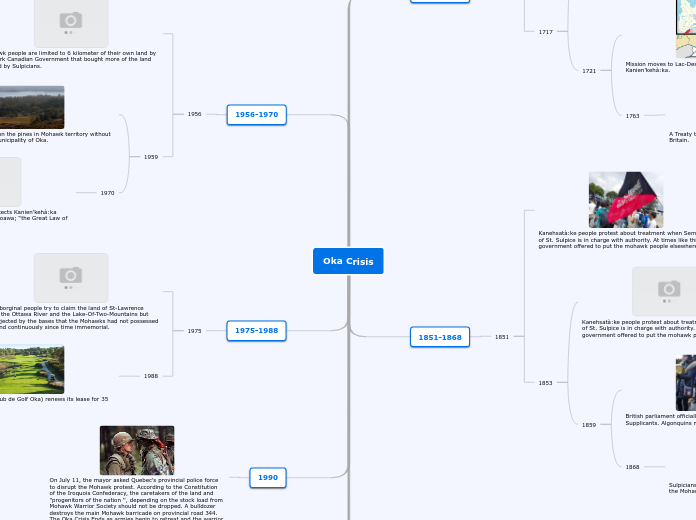por Coleman Panisales 5 anos atrás
397
Organigram
The Oka Crisis was a significant conflict between the Mohawk people and the Canadian government over land rights. It began when the Mohawk refused to vacate their land, which the government claimed.

por Coleman Panisales 5 anos atrás
397

Mais informações
The Oka Golf Club (Club de Golf Oka) renews its lease for 35 years.
1970
Mohawk society repossesses and protects Kanien’kehà:ka territories according to the Kaienerekoawa; “the Great Law of Peace”.
A golf course is built on the pines in Mohawk territory without permission by the municipality of Oka.
The Canadian Government installs the Elected Band Council system under the Indian Act but still does not recognize Kanehsatà:ke either as Mohawk territory or as an “Indian” reserve.
1859
1868
Sulpicians change the place name of Kanehsatà:ke to Oka and the Mohawk have no position on land, losing territory.
British parliament officially has granted land on the Supplicants. Algonquins move to Maniwaki
1721
1763
A Treaty to Paris is signed. France surrenders Canada to Great Britain.
Mission moves to Lac-Des-Deux-Montagnes joining the Kanien’kehà:ka.
King Louis XV orders the seminary to advance and take 9 square miles of property near the Lake of Two-Mountain.